Some of the top foods for encouraging hair growth are those dense in nutrients, such as eggs, leafy greens, and oily fish. When your diet lacks key nutrients, it can negatively impact hair quality and growth.

How does poor nutrition affect hair?
The condition of your hair and its growth rate are influenced by several factors, including:
- age
- overall health
- genetics
- environmental factors
- medications
- diet
While some of these elements are beyond your control, diet is one you can often modify.
Vitamins and minerals obtained from food are essential for the hair follicle growth cycle and cellular renewal.
A diet deficient in important nutrients can result in hair thinning or loss, including shortages in:
- vitamins B12 and D
- biotin
- riboflavin
- iron
Eating a balanced diet rich in these vitamins and minerals may help support hair growth, particularly when nutritional insufficiencies are a contributing cause.
Although more research is necessary to fully map the links between micronutrients and hair loss, ensuring you get adequate amounts of the following 13 nutrient-rich foods that support hair is sensible.
1. Eggs — protein and biotin
Eggs supply both high-quality protein and biotin, two nutrients critical for hair health.
Protein intake supports hair growth because hair strands are primarily protein. Insufficient protein can contribute to hair shedding.
Biotin is needed to produce keratin, a structural protein in hair, which explains why biotin supplements are often pitched for hair improvement. Biotin can enhance hair in individuals with a biotin deficiency (3).
However, true biotin deficiencies are rare among those who eat a varied diet. Little evidence suggests that people without deficiencies gain extra benefit from large biotin intakes.
Excessive biotin can also interfere with lab tests used for diagnosing and monitoring various conditions.
While food sources alone are unlikely to cause excessive biotin intake, many hair-skin-nail supplements contain biotin well above recommended levels.
Eggs also provide zinc, selenium, and other nutrients that support hair, making them one of the best choices for maintaining hair health.
2. Berries — antioxidants and collagen support
Berries are packed with beneficial compounds and vitamins that may aid hair growth, notably vitamin C with its antioxidant action.
Antioxidants protect hair follicles from damage caused by free radicals — unstable molecules produced in the body and environment.
For instance, 1 cup (144 grams) of strawberries supplies about 85 milligrams of vitamin C, meeting or exceeding daily needs.
Vitamin C is also used to synthesize collagen, a protein that strengthens hair and reduces breakage.
Additionally, vitamin C enhances dietary iron absorption. Low iron can lead to iron-deficiency anemia, which has been associated with hair loss.
3. Spinach — vitamins A and C, iron, and folate
Spinach is a nutrient-rich leafy green providing folate, iron, and vitamins A and C — all important for healthy hair.
Research indicates vitamin A plays a role in hair growth, although excess vitamin A from supplements can cause hair shedding.
Most people can meet vitamin A requirements through food sources.
One cup (30 grams) of spinach offers around 20% of daily vitamin A needs.
Spinach is also an excellent plant-based source of iron, which is vital for hair growth by helping red blood cells transport oxygen needed for repair and growth.
Iron deficiency can lead to hair loss.
4. Fatty fish — omega-3s and protein
Oily fish such as salmon, herring, and mackerel supply nutrients that may foster hair growth.
They are rich in omega-3 fatty acids, which could support hair health.
An older trial of 120 women found that a supplement combining omega-3 and omega-6 fatty acids plus antioxidants reduced hair fall and boosted hair density.
Still, only a limited number of studies have examined omega-3s and hair growth, so more research is required before firm advice can be given.
Fatty fish also deliver protein, selenium, vitamin D3, and B vitamins, all of which may contribute to strong, healthy hair.
Some studies have associated low vitamin D3 with hair loss. While causality is unclear, including fatty fish and other vitamin D sources in your diet is reasonable.
5. Sweet potatoes — beta-carotene
Sweet potatoes are rich in beta-carotene, which the body converts into vitamin A — a nutrient linked to hair health.
A medium sweet potato (about 114 grams) contains enough beta-carotene to provide roughly 160% of daily vitamin A needs.
Vitamin A influences sebum production, which helps keep hair moisturized and healthy.
Vitamin A deficiency can contribute to hair loss, yet excessive vitamin A can also lead to hair shedding.
Aim to meet vitamin A needs through foods like sweet potatoes rather than high-dose supplements.
6. Avocados — healthy fats and vitamin E
Avocados are tasty and nutrient-dense, offering heart-healthy fats and vitamin E, which may benefit hair.
One medium avocado (approximately 200 grams) supplies about 28% of daily vitamin E requirements.
Vitamin E is an antioxidant that combats oxidative stress by neutralizing free radicals.
Some research notes lower vitamin E levels among people with hair loss, though findings are mixed.
In one older study, participants with hair loss who took vitamin E supplements experienced a 34.5% increase in hair growth after eight months.
Vitamin E also protects skin regions like the scalp from oxidative damage. Scalp damage can impair hair quality and reduce the number of active follicles.
7. Nuts — vitamin E, B vitamins, zinc, and healthy fats
Nuts are convenient, flavorful, and supply a range of nutrients important for hair.
For example, an ounce (28 grams) of almonds provides nearly half of the daily vitamin E requirement.
Nuts also deliver several B vitamins, zinc, and essential fatty acids. Deficiencies in these nutrients may contribute to hair loss.
Beyond hair benefits, nut consumption is associated with reduced inflammation and lower cardiovascular risk.
8. Seeds — vitamin E, zinc, and selenium
Seeds are nutrient-rich while being calorie-efficient, offering several elements that support hair, including vitamin E, zinc, and selenium.
An ounce (28 grams) of sunflower seeds supplies almost 50% of daily vitamin E needs along with various B vitamins beneficial for hair.
Seeds like flax and chia also provide omega-3 fatty acids.
Two tablespoons of ground flaxseed supply about 4.7 grams of omega-3s. Flax provides a form of omega-3 that is less readily used by the body than the types in fatty fish, but it still makes a valuable addition to the diet.
Eating a mix of seeds helps ensure a broader spectrum of nutrients.
9. Sweet peppers — vitamins C and A
Sweet peppers are rich in vitamin C, a powerful antioxidant that may benefit hair.
One yellow pepper can deliver up to 456% of the daily vitamin C requirement for women and around 380% for men.
Vitamin C supports collagen production, which strengthens hair strands, and also helps protect hair from oxidative damage.
Oxidative stress, caused by an overload of free radicals, has been linked to hair loss and premature graying.
Sweet peppers are also an excellent source of vitamin A, which influences sebum production and overall hair health.
10. Oysters — zinc
Oysters rank among the richest food sources of zinc. A single medium oyster can provide up to 96% of a woman’s daily zinc needs and 75% for a man.
Zinc supports the hair growth and repair cycle.
Insufficient zinc intake can trigger telogen effluvium, a common reversible form of hair loss caused by nutrient shortages. Zinc supplementation can reverse hair loss due to zinc deficiency.
However, too much zinc can be harmful. Obtaining zinc from foods like oysters may be preferable to high-dose supplements, since foods deliver moderate, safe amounts.
11. Beans — protein, zinc, and more
Beans are an excellent plant-based protein source, which is essential for hair production.
Like oysters, beans provide zinc, supporting hair repair and growth. A 3.5-ounce (100-gram) portion of black beans supplies about 14% of a woman’s daily zinc need and 10% for men.
Beans also contain other hair-friendly nutrients such as iron, biotin, and folate.
They are versatile, affordable, and simple to incorporate into meals.
12. Soybeans — spermidine
Compounds found in soybeans may encourage hair growth; one of these is spermidine, which soybeans contain in notable amounts.
A study of 100 participants showed that a spermidine-based supplement extended the anagen (active growth) phase of hair, potentially allowing hairs to grow longer.
Additional research suggests spermidine may stimulate human hair growth (33).
However, research on spermidine and hair is still emerging, so more studies are required before experts can issue specific intake recommendations.
13. Meat — protein and iron
Meat provides nutrients that can support hair, including protein and iron.
Protein from meat helps build and repair hair follicles. A 3.5-ounce (100-gram) serving of cooked sirloin can offer up to 29 grams of protein.
Red meat is particularly rich in heme iron, a form that’s easily absorbed and helps red blood cells transport oxygen to all tissues including hair follicles.
Excessive consumption of red meat, especially processed varieties, has been linked to higher risks of heart disease, colorectal cancer, and type 2 diabetes.
Deficiencies in protein and iron may play a role in hair loss.
Frequently asked questions
What food is best for hair growth?
No single food is the best for hair growth. A varied, nutrient-dense diet that supplies necessary macro- and micronutrients supports hair. This includes protein sources such as fatty fish and lean meats, plus plant foods like spinach, seeds, and nuts.
What foods make hair grow faster?
Foods that may support hair growth include eggs, spinach, fatty fish, and sweet potatoes, among others.
What promotes faster hair growth?
A nutritious diet providing essential nutrients — protein, antioxidants, iron, and fatty acids — supports healthy hair growth. Preventing nutrient deficiencies helps avoid hair loss related to poor nutrition.
Which fruit is best for hair?
Berries are particularly beneficial because they supply antioxidants like vitamin C, which protect follicles from free radical damage and enhance iron absorption needed for hair growth.
The bottom line
Your diet can influence hair health.
Insufficient intake of nutrients such as vitamins A, C, D, and E, zinc, B vitamins, iron, biotin, protein, and essential fatty acids may slow hair growth or contribute to hair loss.
Addressing any nutrient deficiency can help treat hair loss and encourage hair growth.
If you suspect you’re low in any of these nutrients, consider adding some of the foods listed above to your regular meals.

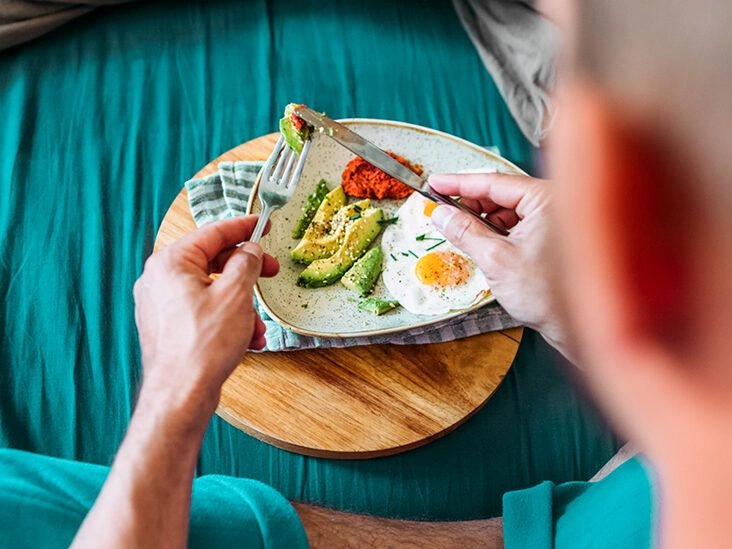
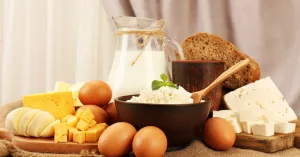

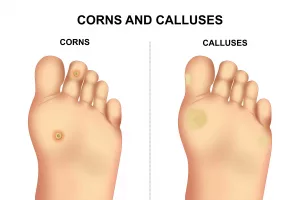
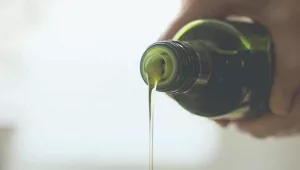
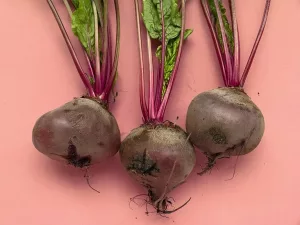
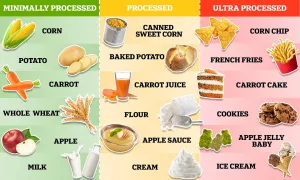
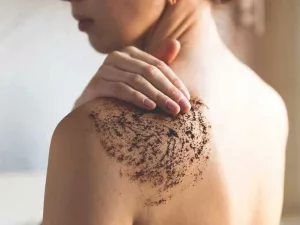

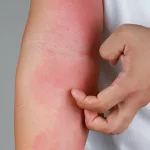
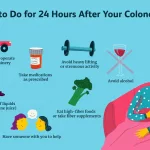


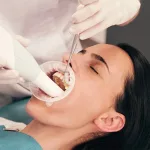





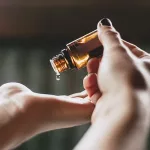

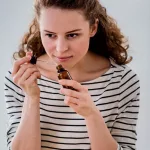


Leave a Reply
You must be logged in to post a comment.